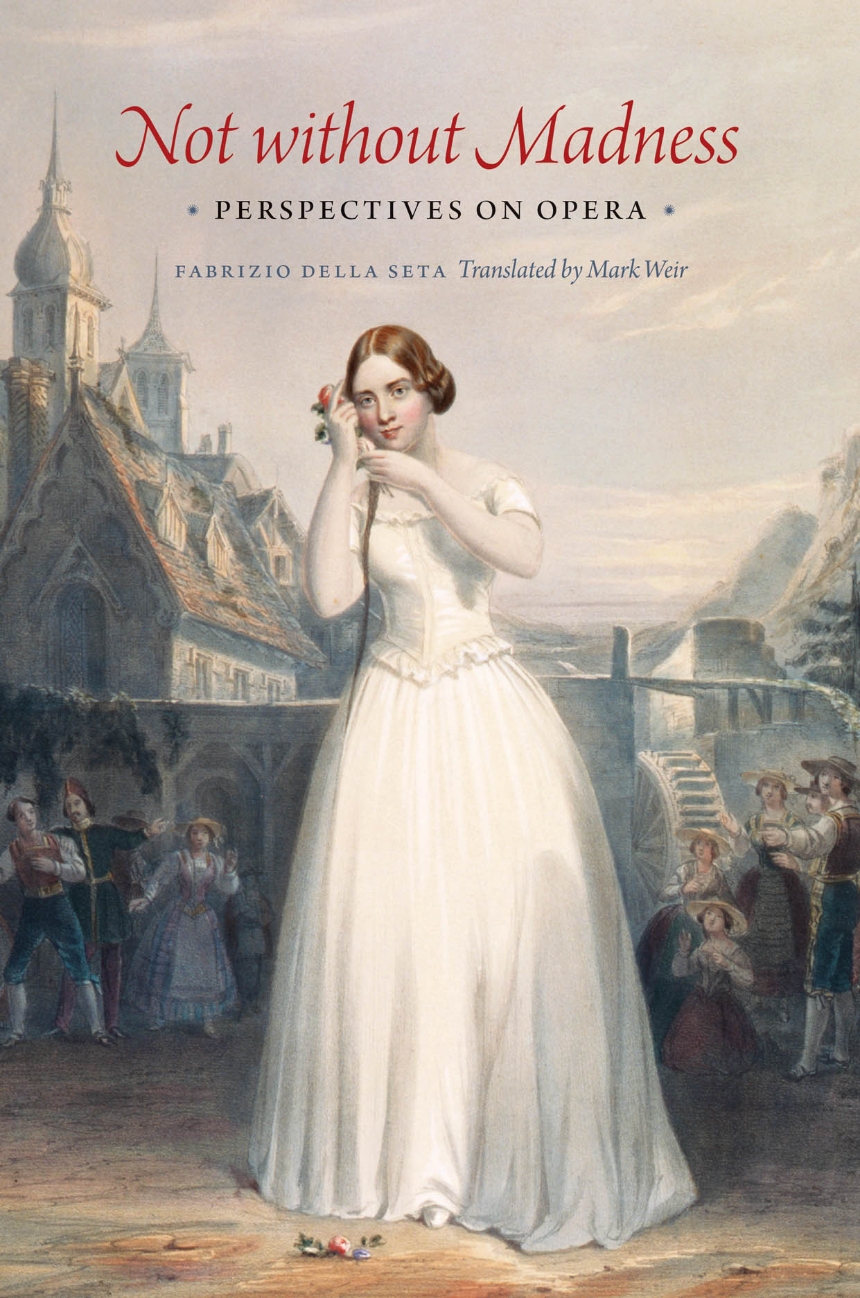Not without Madness
Perspectives on Opera
Opera often seems to arouse either irrational enthusiasm or visceral dislike. Such madness, as Goethe wrote, is indispensable in all theater, and yet in practice, sentiment and passion must be balanced by sense and reason. Exploring this tension between madness and reason, Not without Madness presents new analytical approaches to thinking about eighteenth- and nineteenth-century opera through the lenses of its historical and cultural contexts.
In these twelve essays, Fabrizio Della Seta explores the concept of opera as a dramatic event and an essential moment in the history of theater. Examining the meaning of opera and the devices that produce and transmit this meaning, he looks at the complex verbal, musical, and scenic mechanisms in parts of La sonnambula, Ernani, Aida, Le nozze di Figaro, Macbeth, and Il trovatore. He argues that approaches to the study of opera must address performance, interpretation, composition, reception, and cultural ramifications. Purely musical analysis does not make sense unless we take into account music’s dramatic function. Containing many essays available for the first time in English, Not without Madness bridges recent divisions in opera studies and will attract musicologists, musicians, and opera lovers alike.
320 pages | 37 musical examples, 8 tables | 6 x 9 | © 2012
History: European History
Music: General Music
Reviews
Table of Contents
Preface
Acknowledgments
Note on Terminology
Introduction
Acknowledgments
Note on Terminology
Introduction
Part One: Theory and Analysis
1. Emotion and Action: On the Theory of Italian Opera
2. Ernani: The “Carlo Quinto” Act
3. “O cieli azzurri”: Exoticism and Dramatic Discourse in Aida
4. What “Happens” in the Act 2 Finale of Le nozze di Figaro?
5. The Death of King Duncan: From Shakespeare to Verdi, via the French Revolution
6. “D’amor sull’ali rosee”: Analyzing Melody and the Creative Process
Part Two: History and Criticism
7. Some Difficulties in the Historiography of Italian Opera
8. Verdi: The Italian Tradition and the European Experience
9. Meyerbeer in Nineteenth-Century Italian Criticism and the Idea of “Musical Drama”
10. Alberto Mazzucato and the Beginnings of Italian Verdi Criticism
11. Parola scenica in Verdi and His Critics
12. Gabriele Baldini on Verdi: A Theory of Opera
Notes
Bibliography
Index
